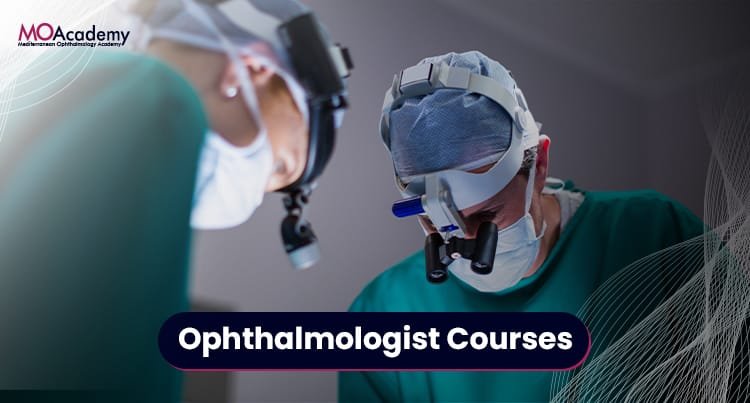Ophthalmologist Courses: Elevate Your Surgical Skills with Expert Training
Ophthalmologist Courses: Elevate Your Surgical Skills with Expert Training
Ophthalmologist courses are medical programs designed in order
to educate ophthalmologists to become specialized in diagnosing,
treating, and controlling the variant eye diseases.
There are many types of Ophthalmologist courses,
and each one targets a certain level of specialization
and interest for ophthalmologists.
Ranging from foundational education to specialized programs,
Mo Academy is giving every ophthalmology resident
a key into the gate of Ophthalmologist courses.
Through this blog, you will get introduced to the different types of ophthalmologist
courses and what ophthalmologists should expect
to learn from the ophthalmologist courses.
Mo Academy offers you a clear and precise take on
ophthalmology courses uk, Ophthalmology Training,
Ophthalmology Technician Training,
Ophthalmology Specialty Training.
What Is the Pre-Ophthalmology Course?
These types of ophthalmologist courses provide basic medical education.
For ophthalmologists to move further and get specialized,
they must have completed a certain level of medical education
related to the anatomy and physiology of the eye.
The general medical education usually contains: understanding
the disease and conditions of the eye and how they affect the eye
health and basic clinical practice and skills to know
how to perform basic eye examination.
What Do Ophthalmologists Learn in Ophthalmology Residency Courses?
As one of the many ophthalmologist courses,
the Ophthalmology residency course follows after completing
medical school.
In this ophthalmologist course, ophthalmologists enroll
in a residence program that usually takes from 3 to 4 years.
Including both theoretical and practical residency training,
the ophthalmology residency covers:
Surgical Techniques:
This ophthalmologist course equips ophthalmologists
with the needed surgical techniques to perform the Phacoemulsification,
which is the small incision done to the eyes in order to remove
the cataract effect.
Additionally, they get trained on the most advanced techniques
for LASIK and other laser techniques for correcting eye errors.
You can now know more about lasik training, Benefits of Lasik Training,
femtosecond laser cataract surgery, Laser Treatment for Cataracts,
and laser cataract course.
Moreover, among the surgical techniques to be learned through the course,
ophthalmologists learn to perform surgeries that happen for eyelids,
tear ducts, and facial structures.
Also, they gain the surgical skills for applying retina related surgeries.
Everything you need to know about retina is covered by Mo Academy.
Check retina and vitreous surgery, surgical retina fellowship,
vitreoretinal surgery procedure, vitreous retinal surgery,
Medical Retina Training, and Medical Retina Online Course.
Practical and Wet Lab Training:
During the ophthalmologists courses, ophthalmologists do both
practical and wet labs training.
They get to train on model eyes to enhance the accuracy of their surgeries.
Through these training they get their hands on the most advanced
tools and get used to the most advanced techniques
that contribute to the overall surgical success rates.
Glaucoma and Ocular Pathology:
This ophthalmologist course covers its enrolled ophthalmologists
with every aspect of Ophthalmology.
Therefore, ophthalmologists get introduced to the Glaucoma
as a disease as well as its treatment options such as trabeculectomy
and tube shunt surgery.
At the same time, this ophthalmologist course covers a wide range
of diseases that affect the eye such as ocular tumors, infections,
and inflammatory diseases, which is known as Ocular Pathology.
Are Certification and Specialization Courses Considered Ophthalmologist Courses?
To prepare for certification or board exams,
ophthalmologists usually enroll in courses to prepare for these
types of assessments.
Since these exams assess their medical, optic knowledge in various aspects,
ophthalmologists learn a great deal from the certification
and specialization courses to be ready for their exam.
These courses also focus on advanced technology and device training,
which means that they focus on the use of tools and most recent
technologies within the medical field.
For instance, they familiarize their ophthalmologists with femtosecond lasers,
OCT (Optical Coherence Tomography), and AI-driven diagnostic tools.
Who Are Ophthalmologist Courses Aimed at, and How Do They Enroll?
Usually, the ophthalmologist courses are directed to senior clinicians,
in the department of ophthalmology, who are aiming at expanding
their medical expertise.
Also, the trainees and residents who are looking for structured skill
courses benefit from the ophthalmologist courses a great deal.
Furthermore, ophthalmologists who are preparing to enroll in Royal College
of Ophthalmologists exams get the needed knowledge
and preparations before their exams.
When medical professionals are transitioning into advanced
surgical techniques and core skill training,
they are also in need of enrolling in an ophthalmologist training course.
Moreover:
Enrolling in ophthalmologist courses is not a hard mission.
Firstly, you need to find the right skill course tailored to your career stage.
Then, you will filter the available ophthalmologist courses
and skim through the options for in-person,
day courses, and online learning.
Lastly, to ensure you are receiving reliable knowledge and the highest
level of skill training, you will look for Institutions offering
a wide range of accredited ophthalmology courses.
Conclusion:
Ophthalmologists are always learning, developing, and observing; therefore,
there are many types of courses that are ophthalmologist courses.
Whether these are the courses that ophthalmologists enroll
into right after finishing their medical school in order to specialize
in a certain specialization or if it is a course that focuses
on one optic aspect to equip its ophthalmologists
with the needed specialized knowledge.
Ophthalmologists also get subjected to continuing medical education
even when they are already professionals.
It is for the sake of keeping their hands on the most up to date
surgical techniques as well as the most recent medical devices to be used.
To Sum Up:
Through the previous lines, you will get to know who are most eligible
for ophthalmologist courses as well as a mini,
quick guide of how to enroll to your most suitable course.
As mentioned previously, the medical field is a fast paced
and continuously evolving one; therefore, if you have any questions
about how to stay up to date or have a precise query regarding
any of Mo Academy’s services, you can always Contact us.

